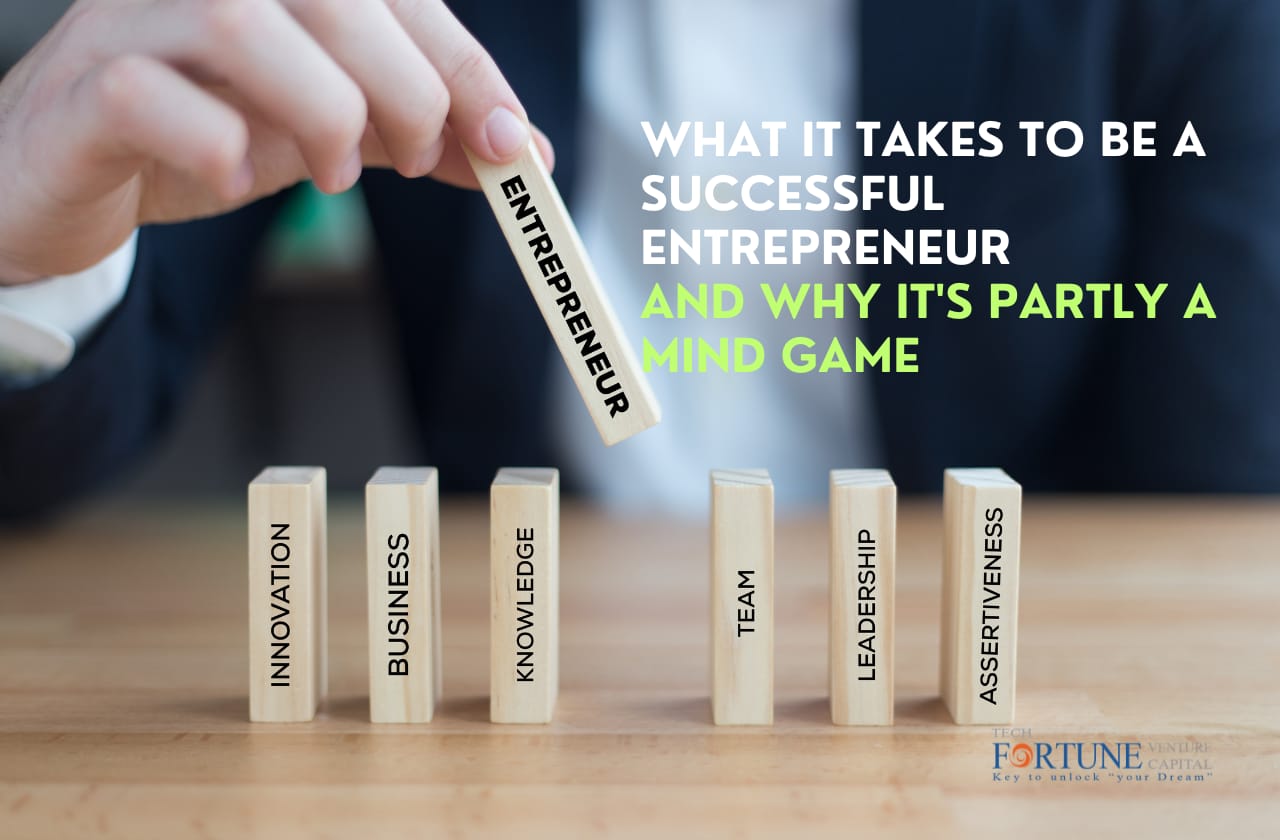“What It Takes To Be A Successful Entrepreneur—And Why It’s Partly a Mind Game
Being an entrepreneur is about far more than having a great idea or securing initial funding. It requires a combination of vision, execution, resilience, and adaptability. Every day, founders face uncertainty, resource constraints, and constant decision-making pressure. Success isn’t just about talent or luck—it’s a mindset. Those who navigate challenges, learn from setbacks, and maintain focus are often the ones who transform startups into thriving businesses.
However, mindset alone isn’t enough. Even the most driven founders need the right guidance, networks, and operational support to scale efficiently. Access to structured resources ensures that founders can focus on strategy and innovation, rather than being weighed down by operational hurdles or gaps in expertise.
Developing Strong Leadership Skills
Leadership is the foundation of any successful startup. A founder must not only inspire their team but also make timely and effective decisions under pressure. Strong leadership is more than a title—it’s the ability to guide a team through ambiguity, manage priorities, and maintain clarity of purpose.
Investing in leadership development is critical. Mentorship, workshops, and coaching can help entrepreneurs develop essential skills such as decision-making frameworks, team motivation, and conflict resolution. Strong leadership creates a culture where employees are engaged, accountable, and motivated to perform at their best.
For example, a founder who invests time in understanding their team’s strengths and weaknesses can delegate effectively, ensuring that critical tasks are executed efficiently. Leadership is also about emotional intelligence—recognizing when to pivot, when to persist, and how to foster a culture of trust.
Strategic Networking at Every Stage
The value of a strong network cannot be overstated. Early-stage startups often need mentors, advisors, and seed investors to validate ideas and provide guidance. As startups grow, the focus shifts toward strategic partnerships, business alliances, and customer networks.
Tailored networking ensures that founders are not just meeting people, but connecting with those who can provide meaningful impact. Early mentorship can help avoid costly mistakes, while strategic partnerships during scaling can open doors to new markets and distribution channels.
For example, a founder seeking global expansion may benefit more from a network of international distributors than local contacts. Understanding what your startup needs at each stage ensures that time and effort spent networking can yield the greatest return.
Streamlining Operations and Boosting Marketing
Running a startup involves juggling multiple moving parts—product development, customer support, sales, marketing, and logistics. Operational support streamlines these processes, helping founders focus on growth rather than day-to-day administrative challenges.
Marketing support is equally critical. In today’s competitive landscape, a strong digital presence can make or break a brand. Strategic guidance on social media, content marketing, and digital campaigns ensures that startups reach the right audience efficiently. It also builds credibility, attracts customers, and drives engagement.
For example, a startup offering niche software solutions may need guidance on content strategy and SEO to reach the right clients. Operational support ensures that orders, deliveries, and customer queries are handled seamlessly, creating a professional and reliable brand image.
Enhanced Support for Critical Functions
Most startups don’t have full-time experts in every function, and that’s where augmented support becomes invaluable. From Finance and HR to infrastructure management, having access to specialized expertise ensures critical business functions run smoothly.
Finance support helps maintain accurate accounting, budgeting, and cash flow management, which are vital for sustainability. HR support ensures effective recruitment, onboarding, and employee engagement. Infrastructure support—from office setup to IT systems—provides the backbone for daily operations.
By leveraging augmented services, founders can focus on strategic growth without worrying about operational gaps. For example, a startup can launch a product globally without hiring an internal finance team, relying instead on trusted external experts to manage compliance, payroll, and taxation.
Continuous Support Through a Monthly Framework
A consistent support framework is essential for maintaining momentum. A monthly review model provides ongoing mentorship, operational oversight, and business insights. Unlike one-off consulting, this approach ensures founders receive continuous guidance, helping them navigate challenges and seize opportunities.
Continuous monitoring allows early identification of issues before they escalate. For instance, monthly review sessions can reveal cash flow bottlenecks, operational inefficiencies, or gaps in digital marketing strategy. Founders can then make informed decisions, minimizing risks and maximizing growth potential.
Mastering the Mental Side of Entrepreneurship
Entrepreneurship is as much about mental resilience as it is about operational efficiency. Founders face pressure, uncertainty, and unexpected setbacks daily. The ability to stay calm, maintain focus, and adapt is often what differentiates successful entrepreneurs from others.
Resilience involves learning from failures rather than being defeated by them. Adaptability ensures that founders can pivot when market conditions change or when feedback indicates a different approach is needed. Mental clarity allows leaders to prioritize effectively, make confident decisions, and inspire their teams even in high-pressure situations.
For example, an entrepreneur navigating a sudden supply chain disruption must think strategically, communicate transparently with stakeholders, and adapt operational plans—demonstrating both resilience and leadership.
Combining Mindset and Strategic Support
The most effective entrepreneurs combine a strong mindset with the right support system. Services such as leadership development, networking guidance, operational assistance, marketing support, augmented services for Finance, HR, and infrastructure, and a monthly review model provide the foundation for sustainable growth.
By blending mindset with practical support, founders can focus on vision, innovation, and strategic growth without being bogged down by operational challenges. This approach not only accelerates business outcomes but also builds long-term resilience and confidence.
Wrap Up:
Success as an entrepreneur is not just about working harder—it’s about working smarter, balancing mindset with structured support, and leveraging resources strategically. Building leadership, networking effectively, streamlining operations, and accessing augmented services empower founders to focus on what matters most: growing their startup with clarity, confidence, and resilience.
At Techfortune Venture Capital, we partner with founders to provide comprehensive support across leadership development, operational guidance, marketing strategy, and functional augmentation. With our monthly review model, entrepreneurs receive continuous mentorship and strategic insights that help them thrive. Partner with Techfortune Venture Capital to transform your vision into a successful, sustainable reality.
FAQ:
Timing can significantly impact a startup’s success. Entering a market too early or too late can affect adoption, funding opportunities, and growth potential. Strategic timing helps founders maximize traction.
A capable team can support areas where the founder lacks expertise, but leadership vision and decision-making remain critical. Success comes from balancing strong teams with effective founder guidance.
Markets, technologies, and customer needs constantly evolve. Founders who pivot intelligently and adjust strategies quickly are better positioned to sustain growth and overcome unexpected challenges.
External mentors provide perspective, guidance, and connections that founders might not access otherwise. While not mandatory, mentorship often accelerates learning and reduces costly mistakes.

